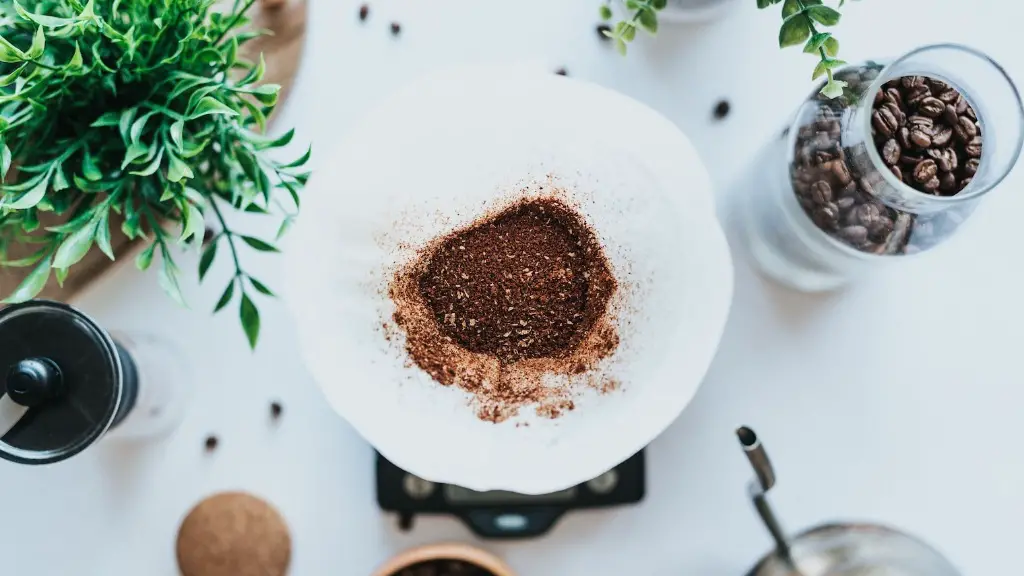Background information
Coffee consumption is a daily ritual for many people across the world. Along with providing an energy boost in the morning and throughout your day, it may be difficult to determine how many cups of coffee you should have and when before going to bed. Improper consumption of coffee can disrupt both the quality and length of sleep, but with the correct timing, coffee consumption can have a positive effect on its quality.
In the United States alone, over 450 million cups of coffee are consumed every day. With the numerous health benefits associated with drinking coffee, it can be difficult to decide when you should stop drinking coffee for the day. It is important to know when the optimal time for your body would be in order to avoid any potential sleeping problems due to the caffeine content in coffee.
Relevant data and perspectives from experts
A study by the National Sleep Foundation found that caffeine consumed up to 6 hours before bed can cause disrupted sleep. Therefore, it is recommended that individuals should drink their last cup of coffee 6 hours prior to bedtime. If this is not possible, consider reducing your total daily intake of caffeine, or switch to decaffeinated coffee and herbal teas in the afternoon.
Additionally, the average person’s sensitivity to caffeine can vary. Tolerance levels and sleep quality can be affected by many factors such as age, genetics, medical conditions, and caffeine intake throughout the day. Therefore, it is important to take note of how your body reacts to caffeine as some people may need to decrease their caffeine intake or stop drinking coffee earlier in the day.
According to sleep experts, if individuals choose to drink coffee close to bedtime, the best time to do so is no later than 3-4pm. This is due to the fact that caffeine metabolites remain in the body for many hours and can cause disruptions in your sleep if it is processed too close to bedtime.
Own Insights and Analysis
From personal experience, I know that drinking a cup of coffee near bedtime can have a drastic effect on how well I sleep. I can personally testify to the fact that it can be difficult to determine your ideal timing based on your day to day caffeine intake but it is important to stick to a routine that works best for you. If you are having trouble sleeping, try sticking to the 6 hour limit or earlier and monitoring how much caffeine you are drinking throughout the day to make sure it’s not too much.
While it may be tempting to drink coffee a few hours before bed to help feel alert and energized for the evening, doing this could have negative effects on your overall sleep duration and quality. Therefore, it is important to listen to what your body is telling you and adjust your caffeine intake accordingly if you need to.
By following these simple tips, you can be sure to get adequate rest without sacrificing the delicious taste of your favorite cup of java.
Do Caffeine Supplements Affect Sleep?
Caffeine supplements have become increasingly popular in recent years due to their convenience and effectiveness in providing an energy boost. While they can provide a short-term energy advantage, they also are associated with negative health consequences. As a stimulant, caffeine can affect your sleep patterns, so it is important to consider how caffeine supplements could affect your rest.
Caffeine in supplement form can be ingested in a concentrated way, leading to a much higher concentration of caffeine in the body than regular coffee. This can lead to disruptions in sleep quality and length, as the body is processing a steep dose of caffeine rather than having it slowly released through regular coffee consumption. It is generally recommended that individuals avoid taking caffeine supplements close to bedtime, as this could make it difficult to fall asleep and remain asleep for long periods of time.
In addition to its effect on sleep, caffeine supplements have been linked to anxiety, elevated heart rate, and other physical and mental health concerns. Therefore, it is important to consider all possible side effects before using caffeine supplements. If you are considering using a caffeine supplement, it is best to consult with a physician and take into account your personal health history.
Lifestyle Changes That Can Help You Sleep Better After Drinking Coffee
Making lifestyle changes can help you to sleep more deeply and effectively after consuming coffee. One of the most important changes is to give yourself enough time to wind down before bed. Taking part in a relaxing activity such as reading or listening to calming music will help you relax before you attempt to sleep. Another lifestyle change that can help you sleep better is to avoid using any screens including phones and computers close to bedtime. The blue light from these devices can make it difficult to fall asleep.
It is also important to maintain a consistent sleep schedule. Going to bed at the same time and getting up at the same time each day can help condition the body and set it up for more restful sleep. Additionally, it is recommended to avoid eating large meals close to bedtime, as the body needs time to digest the food and this can disrupt your sleep. If you are still feeling hungry before bed, eating lighter snacks such as yogurt or fruits can help keep hunger pangs at bay.
These lifestyle changes can make it easier to sleep after drinking coffee and ensure that you get the rest you need. It is important to adjust your timing accordingly and listen to your body to determine the best courses of action regarding caffeine consumption.
What Are The Benefits Of Drinking Coffee In The Morning?
Drinking coffee in the morning can provide many health benefits. Coffee is one of the most widely consumed beverages in the world, and it is known for its energizing properties. Studies have found that drinking one or two cups of coffee can help to improve alertness and focus, allowing for more productivity throughout the day.
Coffee is also packed with antioxidants that can help to protect your body from damage from free radicals. Studies have shown that coffee consumption could reduce the risk of certain chronic diseases such as Alzheimer’s, Parkinson’s, and type 2 diabetes. Additionally, the caffeine content in coffee can help to reduce the risk of depression and help to improve mood.
Overall, drinking coffee in the morning can help to improve your focus, productivity, and mental health. It is important to pay attention to how much caffeine you are consuming and to adjust your intake accordingly if necessary.
Can Coffee Improve Exercise Performance?
Coffee has been shown to be beneficial for improving physical performance, specifically during exercise. Caffeine is a naturally occurring stimulant that helps to improve alertness and focus. Studies have shown that caffeine helps to increase the body’s metabolism and increase the body’s use of fat for energy, allowing for a boost in endurance for workouts.
Many athletes rely on coffee to provide an energy boost before workouts, and studies have shown that drinking coffee can improve endurance performance by up to 12%. Additionally, coffee can help to reduce pain and increase power output in order to maximize your workout. However, it is important to note that everyone’s caffeine tolerance is different, so it is important to pay attention to how your body responds to coffee.
Overall, drinking coffee prior to exercise can help to improve physical performance and boost the body’s energy. It is important to pay attention to your body’s response to coffee in order to determine your optimal timing and consumption.





